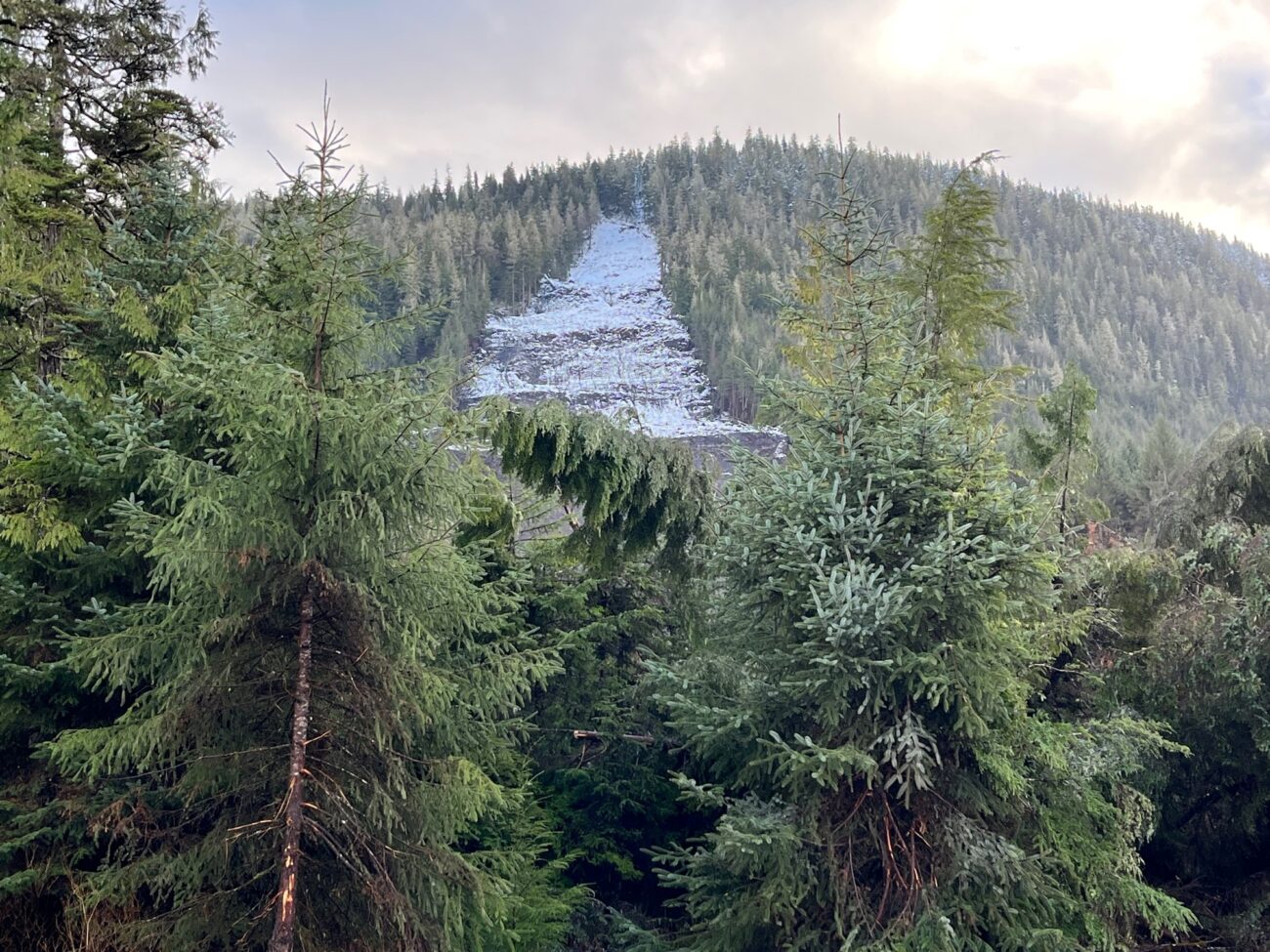
The Federal Emergency Management Agency included lost subsistence food in the Wrangell Cooperative Association’s disaster declaration last week.
Following last November’s catastrophic landslide, Tribal Administrator, Esther Aaltséen Reese, and other members took action.
“First of all, I’d like to acknowledge that our community suffered a devastating loss and it impacted each and every one of us,” she said. “We were trying through the FEMA assistance to provide just a little help for the community members and those that were impacted.”
The Tribe encouraged the Biden Administration to include subsistence in the emergency declaration assistance. Reese said previous disaster declarations could replace freezers and other appliances, but not subsistence foods. This has now changed. Early last week Reese and council members received the news through an email.
” I read it and I was just like, dancing around,” she said. “We had council members there. Everyone was so excited. We’re giving high fives.”
The FEMA email said that individual assistance can now include subsistence foods.
“We were so excited that this addition was approved,” Reese said. “The importance of traditional subsistence foods runs very deep for our people. The peoples of the Stikine Kwan have stewarded and depended on our lands for subsistence for 1000s of years. And we depend on traditional subsistence foods for their cultural importance.”
Many residents also depend on subsistence foods as an economic factor because food and living are significantly high in Wrangell.
“If freezers full of subsistence foods are lost due to a natural disaster, it is the equivalent of the loss of a grocery store in remote rural areas,” Reese said. “We realize this importance and requested that FEMA add traditional subsistence foods as something that is covered after a natural disaster.”
Subsistence food in Wrangell could be a freezer full of moose, venison, salmon, berries and other traditional foods.
Executive order acknowledges how Tribal governments steward their lands
Reese grew up eating subsistence foods in Kake (Keex’ Kwaan) on Kupreanof Island.
“One of my favorite memories was eating salmon cooked in skunk cabbage leaves on the coals of a fire, and eating herring eggs with seal grease,” she said. “It just brings up the sense of how our traditional foods are our connection to our culture, they’re our connection to our land and they’re our connection to our ancestors.”
The executive order that the Biden Administration advanced acknowledges that Tribal governments bring expertise in the needs of their citizens and in stewarding their lands.
Natalie Shaver, FEMA public affairs specialist, said that FEMA will be in Wrangell during April to assist residents with applying for individual assistance.
“I do want to remind people that even though we don’t have that in person location at the moment, we do have an Alaska specific hotline,” she said. “We do know the needs of Alaskans are very different than maybe the rest of the country.”
Shaver recommends that people apply for assistance, even if November’s storms did not damage their houses. Things that the assistance could cover include grants for home repairs, temporary rental assistance, vehicles if damaged and essential personal property.
“There’s also potentially money for loss of subsistence items,” she said. “Other things that people might think about that could potentially be covered could be medical, dental, and funeral expenses caused by the disaster as well.”
Other assistance from FEMA
Shaver said that FEMA cannot duplicate funds, meaning if the state already covered something, they cannot cover that same item. She said there’s a public assistance side too, where the federal government pays 75% of the cost and the Tribe pays 25%.
These can go to disaster expenses like damaged infrastructure and public facilities.
Lastly, a Hazard Mitigation Grant Program is included in the disaster declaration.
“This grant funding is something that the Tribe can use that will help protect against future hazards,” Shaver said. “They don’t have to be necessarily related to a landslide. It can be any kind of threat that poses risk.”
This could be a wildfire, flooding or something different from what has already been experienced.
The Alaska specific FEMA hotline for people to apply for individual assistance is 1-866-342-1699.
Update: A Disaster Recovery Center will be held between April 8 and April 12 at the Nolan Center between 9am and 7pm.
The Nolan Center is located at 296 Campbell Dr.











